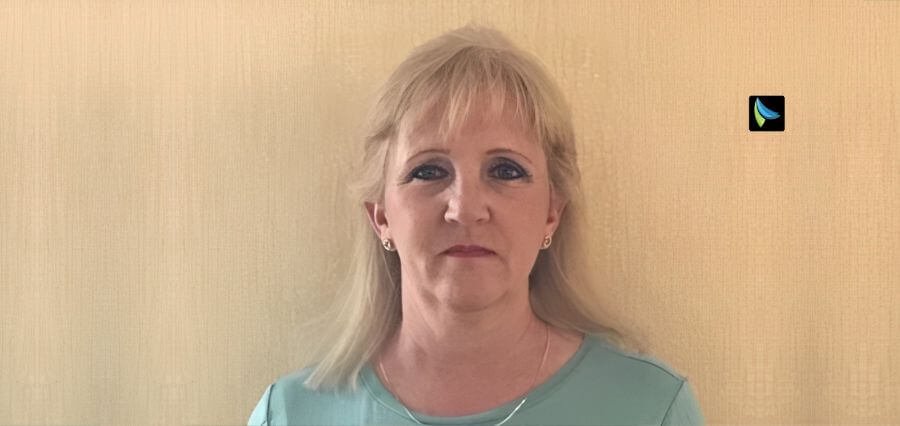The finance sector in the Middle East, particularly in Dubai, is characterized by brisk growth and transformation, presenting both unique challenges and significant opportunities. As companies cross geopolitical instability, economic volatility, and the urgent need for portfolio diversification, the role of the Chief Financial Officer has become increasingly critical.
A visionary leader in this space is Yazan Al-Tini, the CFO of Al Bayari Investment Group, who plays a pivotal role in shaping the firm’s financial strategy and operations. Yazan oversees a wide range of responsibilities, including financial planning, capital allocation, and, in addition, risk management, ensuring compliance with regulatory standards both locally and internationally.
His diverse career has equipped him with a multifaceted understanding of financial management, allowing him to tackle challenges with innovative solutions.
A Visionary Leader
As a seasoned professional in the field, Yazan views finance as a vital catalyst for strategic growth, particularly in the dynamic markets of the Middle East. He champions the integration of cutting-edge technology and sustainability principles into financial decision-making, positioning Al Bayari Investment Group for long-term success. His forward-thinking approach aligns financial strategies with emerging market trends, ensuring the firm’s resilience and competitiveness.
His career trajectory has been marked by progressive roles across various industries, each presenting new challenges and responsibilities. This diverse background in financial management, acquisition, and due diligence allows him to approach financial problems from multiple perspectives.
His multifaceted experience equips him with a comprehensive understanding of effective financial and investment management, making him an invaluable strategist and thought leader within the organization. Yazan’s diverse expertise enables him to navigate complex financial landscapes, anticipate market trends, and implement innovative solutions that drive long-term value creation.
The Role of CFOs
Yazan thrives on diving into complex data, uncovering critical insights, and leveraging them to guide companies towards informed decisions that drive sustainable growth and competitive advantage. “I fell in love with finance because it combines two things I really enjoy – crunching numbers and shaping big-picture strategies,” says Yazan.
“There’s something exciting about diving into data, uncovering insights, and using those to help a company make smart choices and grow. It’s like being a detective and a visionary all at once.” As the Chief Financial Officer of Al Bayari Investment Group, he oversees all financial operations and strategy. His key responsibilities encompass financial planning and analysis, capital allocation, fundraising, fintech initiatives, risk management, and investor relations, all while ensuring regulatory compliance both locally and internationally.
Yazan views finance not merely as a matter of balance sheets and budgets but as a vital tool for steering the ship and charting a course toward success. “The Middle East, and Dubai in particular, offer an exciting opportunity to be part of a rapidly growing and dynamic market,” he says. “The scale and ambition of development projects here is unmatched globally, which presents unique financial challenges and opportunities.”
Despite the hurdles faced by companies in the region, he points out significant opportunities in sectors such as real estate, renewable energy, technology, and tourism. He underscores that CFOs can no longer afford to take a passive role; they must grasp their financial expertise to influence strategic decisions. “It’s crucial for us to ask, ‘Have we considered this?’ or ‘What if we explored that?”” he asserts.
Strategic Financial Management
Yazan emphasizes the critical role of digital transformation, asserting that CFOs must actively lead this initiative. Under his guidance, Al Bayari Investment Group implements a sophisticated strategy rooted in financial modeling and scenario planning to evaluate growth opportunities.
The firm prioritizes efficient cash flow management and working capital optimization, ensuring financial resources align seamlessly with overarching organizational objectives. This approach enables agile decision-making and positions the company to capitalize on emerging market opportunities while mitigating potential risks.
This approach is akin to monitoring the lifeblood of the business, requiring a delicate balance between investing for growth and maintaining liquidity. Finally, the objective is to confirm that capital is applied as efficiently as the team handling the company forward. “It’s definitely a balancing act,” he confirms. “But we need to make sure our money is working as smart as our people do.”
Navigating the Digital Revolution
Yazan highlights how technology has revolutionized Al Bayari Investment Group’s financial processes. The company has successfully implemented cloud-based ERP systems, automated routine tasks, and leveraged advanced analytics for enhanced forecasting and decision support.
Looking to the future, Yazan envisions AI playing a pivotal role in further refining these capabilities, enabling more sophisticated predictive analytics and freeing finance teams to focus on high-value strategic initiatives.
Broad Risk Management
With Yazan at the financial helm, Al Bayari Investment Group employs a holistic approach to risk management, meticulously considering financial, operational, and strategic risks. The firm rigorously stress- tests its plans against a variety of scenarios to confirm resilience.
To navigate the complexities of regulatory compliance, the company maintains a dedicated team that vigilantly monitors evolving requirements. The company also strategically collaborates with external auditors and legal counsel to ensure comprehensive and proactive adherence to all regulatory obligations.
This multi-faceted approach not only guarantees compliance but also positions the firm to anticipate and adapt to future regulatory changes, safeguarding its operations and reputation in the dynamic Middle Eastern financial landscape.
Refining a Culture
Yazan firmly believes in the principle of practicing what he preaches. He sets high standards for himself and expects the same from his team, developing a culture where innovative thinking is not just encouraged but is a fundamental expectation. Under his guidance, the company has prioritized ongoing training and development opportunities, celebrating top performers and their contributions.
Also, he has spearheaded a mentorship program, reinforcing the organization’s allegiance to innovation and offering team members the chance to work on breakthrough projects that are shaping the region.
Developing Cross-Functional Collaboration
Yazan prioritizes cross- functional collaboration and open interaction within Al Bayari Investment Group. He regularly engages with department heads to gain insight into their needs and challenges.
To facilitate understanding among non-financial stakeholders, he utilizes data visualization tools, making financial insights more accessible and relatable. This approach not only advances collaboration but also empowers teams to make informed decisions.
Integrating Financial Sustainability
Yazan champions the integration of financial sustainability into Al Bayari Investment Group’s decision-making processes, emphasizing its crucial role in ensuring long-term success. Under his financial leadership, the company evaluates economic decisions through a dual lens, balancing short-term gains with long-term sustainability impacts.
This forward-thinking approach not only enhances the firm’s resilience but also aligns its financial strategies with global sustainability trends, positioning Al Bayari as a responsible leader in the Middle Eastern financial landscape. By prioritizing sustainable financial practices, Yazan ensures the company’s growth trajectory remains robust and ethically sound in an increasingly conscientious market.
Embracing a comprehensive risk assessment framework that incorporates sustainability factors has empowered Al Bayari Investment Group to proactively identify and mitigate potential financial impacts from both internal and external sources. Regular engagement with investors, customers, and employees helps incorporate their sustainability concerns into financial planning.
By implementing these strategic initiatives, the company not only secures its long-term financial sustainability but also positions itself as a catalyst for positive change in society and the environment.
This holistic approach reinforces the firm’s commitment to responsible investing, creating a virtuous cycle of sustainable growth and societal impact that sets a new standard for financial leadership in the Middle East. This approach not only manages risks effectively but also reveals new opportunities for innovation and growth in an eternally growing business setting.
Insights on the Future of Finance
Sharing his perspective on the future of the finance industry, Yazan notes that the increasing adoption of blockchain technology for financial transactions and the ongoing efforts toward economic diversification as emerging trends.
For aspiring finance professionals, he advocates acquiring relevant certifications early in their careers to build a robust skill set. He emphasizes the critical fusion of financial acumen, strategic thinking, and technological literacy as essential for success in the evolving financial landscape.
Yazan underscores the paramount importance of interpersonal skills, noting that effective interaction often holds the key to overcoming complex challenges. “Never underestimate the power of communication,” he affirms. “So many hurdles can be overcome just by knowing how to talk to people.” He encourages newcomers to step out of their comfort zones and push boundaries, viewing these experiences as catalysts for significant personal and professional growth.



















